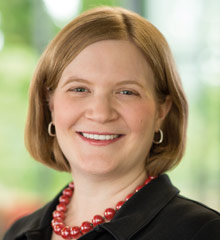Commentary on Genesis 1:1-5
In recent decades scholarly opinion on how to translate the opening words of Genesis—bereshit bara—has moved away from “In the beginning God created” and has instead coalesced around the phrase “When God began to create …” The Common English Bible (CEB) and the updated edition of the New Revised Standard Version (NRSVue) use this latter option, as does Robert Alter’s translation of the Hebrew Bible, among others.1
While the shift opens up interesting theological conversations around the idea of creatio ex nihilo, or “creation out of nothing,” I am more drawn to the softness this option brings to the start of Genesis. Rather than a sudden, hard, starkly drawn beginning—to Genesis, to the Bible, to creation itself—it is as if a moment of newness has been plucked from the grand swath of time, like scooping out a cup of water from a stream. In our shared story this becomes the moment where life as we know it begins, the moment God began to do something with us: a distinct moment, and yet a moment immersed in all that God was and is and did and does before and after us.
In addition to the headline-grabbing, revenue-generating spectacle of the New Year’s celebrations that move us from December 31 of one year to January 1 of the next, there are actually many different moments we regularly use to mark the passing of time. Each different calendrical arrangement has a different beginning point.
The church year begins with Advent, and so in that way we are already just over a month into the “new year.” For educators and students, the school year can be the most meaningful way to mark time, with each year beginning afresh in August or September. I know someone who wishes her friends “Happy New Year” on their birthdays: another “trip around the sun,” as the saying goes. We regularly pluck new beginnings for ourselves from the swath of time given to us.
Sometimes the beginnings we choose have to be chosen and rechosen again every day, every minute: to stay sober, to choose patience over anger, to live full of hope in the face of despair. Sometimes new beginnings are chosen for us: by hardship or tragedy or opportunity, by luck or by Providence—who knows? And as many poets and philosophers and meme-creators have noted, beginnings and endings always go together, a matched pair.
All of this is to say that the beginning is a more ephemeral, ongoing idea than it might seem at first glance, something our practices of beginnings bear out. And so, when the Gospel of John declares that “in the beginning was the Word,” we can remember that the Word was with God and was God at that beginning, but also was and is at all the other beginnings we experience in the hard work of living day to day, and in the beginnings we don’t even know about, the ones crackling in the cosmos beyond us.
The lectionary readings for the first Sunday of the new year invite preachers to reflect on many different beginnings: the turn of the calendar page, the opening sentences of the Bible, the advent of creation, and new life in Christ through baptism. Many of our beginnings are marked with great hope, though some are tinged with dread. We could say the same about the beginning of Genesis. We see the cosmic hope of new life, but we know what happens later, even in the first eleven chapters: fear, death, confusion, destruction.
Jesus’ baptism as told by Mark similarly holds together hope and dread. The Spirit settles on Jesus, a voice from heaven announces his belovedness, and then, probably while water still drips from his hair, “the Spirit immediately drove him out into the wilderness. He was in the wilderness forty days, tempted by Satan; and he was with the wild beasts; and the angels waited on him” (Mark 1:12–13). In Jesus, cosmic blessedness meets the terrors of incarnation.
The Christmas song “I Wonder as I Wander,” perhaps still ringing in our ears, captures some of that same dread: “I wonder as I wander out under the sky, how Jesus our Savior did come for to die.” The beginning looks to the end, but the end—Jesus’ death—is also a beginning of resurrection and new life, for Jesus and for us. It is a mystery worthy of our wonder.
Preaching these five brief verses from Genesis 1 can lift up the messiness and ambiguity of beginnings. In Genesis 1, God’s creation of the world is not marked by a bell or a buzzer. God just wades into the chaos of tohu wabohu—“formless void” (New Revised Standard Version), or “complete chaos” (New Revised Standard Version, Update Edition), or “welter and waste” (Alter)—and starts talking.
New beginnings can happen at any moment, but they are not always apparent in the moment. Telling a story imagines the luxury of a narrative framework: looking back and slotting our experiences into a beginning, a middle, and an end. We love stories, and stories help us define ourselves and our communities. When we are knee-deep in those experiences, though, we do not always see the story. We do not always know when something has begun!
But God is always hovering over our tohu wabohu, as God’s wind swept over the face of the waters at creation. The hope of Genesis is that God is continually scooping up a cupful of the river of time and creating something good out of our chaos—even beginnings we cannot yet discern.
Notes
- Robert Alter, The Hebrew Bible: A Translation with Commentary (New York: W. W. Norton, 2018).


January 7, 2024